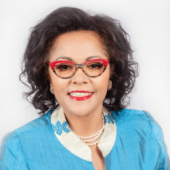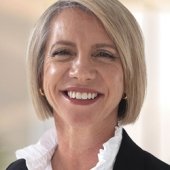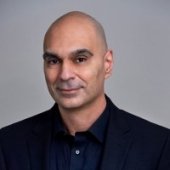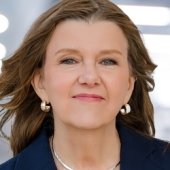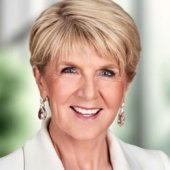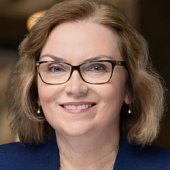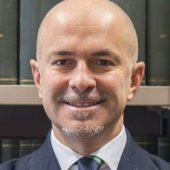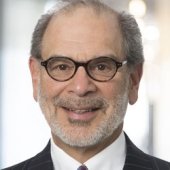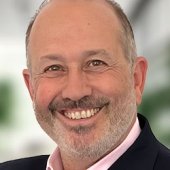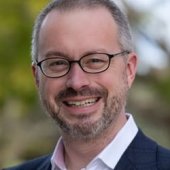The World Bank's Ed Olowo-Okere: Let's reimagine government for good
IN BRIEF
- "When we talk about the governance problems, there are many of them. I will just focus on two: corruption, and lack of voice and participation. So, if you look at these two problems, you will see that they are responsible to a large extent for the legitimacy and trust deficit that most governments suffer."
- "We know there are two critical factors for securing and maintaining trust. The first one is delivery of services that meet the expectation of citizens, and the second aspect is transparency and accountability in the service delivery process."
- "We will have a new social contract that governments and citizens are really excited about, and we can then look forward to governments that will increasingly meet citizens’ expectations and deliver on their promises, will be better prepared for crises, and governments that will be innovative and productive."
In this VISION by Protiviti Interview, the World Bank’s Ed Olowo-Okere, Senior Advisor, Equitable Growth, Finance and Institutions, and Director of The World Bank’s Future of Government report, sits down with Charles Dong, Global Public Sector industry lead for Protiviti and Joe Kornik, Editor-in-Chief of VISION by Protiviti to discuss the World Bank’s new social contract and call to action for governments around the world to reinvent themselves as they face unprecedented health, economic, and fiscal challenges.
In this interview:
1:16 – The Future of Government report
2:54 – The biggest problems of governance: Corruption and participation
6:45 – The role of government in the future
11:00 – The role of the private sector
13:25 – Will governments seize the opportunity, or miss it?
The World Bank’s Ed Olowo-Okere: Let’s reimaging government for good
Joe Kornik: Welcome to the VISION by Protiviti interview. I’m Joe Kornik, Editor-in-Chief of VISION by Protiviti, our global content resource examining big themes that will impact the C-suite and executive boardrooms worldwide. Today, we’re exploring the future of government, and we’re thrilled to welcome the World Bank’s Ed Olowo-Okere, the former Global Director of the Governance Global Practice, and now Senior Advisor in Equitable Growth, Finance, and Institutions. Ed is the director of the World Bank’s Future of Government report, a call to action for the governments around the world to reinvent themselves as they face unprecedented health, economic and fiscal challenges. Today, I’ll be sharing interview duties with my colleague, Charles Dong, Global Public Sector industry lead for Protiviti. Charles will join us in just a few moments, but now I’m going to welcome Ed. Thank you so much for joining us today.
Ed Olowo-Okere: Glad to be here, Joe, and thanks for having me.
Kornik: So, Ed, let’s start at the beginning. This Future of Government report is not an annual or regular report. It was your brainchild. So, why did you and the World Bank think a Reimagining Government for Good report was necessary?
Olowo-Okere: Thank you, Joe. You’re absolutely right that this is not a regular report or an annual report. In 2020, we discovered that governments across the world were facing multiple crises, including health, social, fiscal, and economic. As you know, these crises were triggered or exacerbated by the COVID-19 pandemic. They were also coupled with the climate change crisis. So, we know from history that crises have often driven reforms in governments, and we reckon that the 2020 crises were not going to be an exception. So, the real question was, what kind of reforms would be undertaken by governments? So, we wanted to be able to help or support governments to make reforms that are truly transformational, reforms that are well-coordinated, and also draw on lessons about what has worked and what has not worked in the past decades.
Kornik: Right. You make the point in the report that many governments can’t meet just the basic needs of their citizens because of unresolved governance problems. So, what do you see as the biggest problems of governance, and how do we solve them going forward?
Olowo-Okere: Okay. So, let me clarify that the basic needs that we’re talking about, really, are things like basic health care, clean water, basic education, shelter, social safety nets, and simple kind of security of lives and livelihood. So, when we talk about the governance problems that are responsible for this, there are many of them. In the interest of time, I will just focus on two, and the two I’ll focus on are corruption, and lack of voice and participation. So, if you look at these two problems, you will see that they are responsible to a large extent for the legitimacy and trust deficit that most governments suffer. If you look at a number of countries as well, where there are violent conflicts and fragility, you will see that these two problems are really the main contributors to these issues of fragility and conflict.
As to your question regarding how we can solve these problems. We know, if we take the case of corruption, corruption is an age-long issue. It has been around for a long time, but we know also that there are countries that have effectively managed to be able to control corruption. So, the problem can be solved. Now, the question then is, okay, how do you solve it? This is really about countries deliberately ensuring that there is greater and enhanced transparency and accountability, and undertaking reforms to block all possible avenues for corruption. Strengthening institutions, and the institutions to be strengthened are institutions for accountability and justice. Then we need strong country leadership. I must say, in the case of corruption, there is also a need for international collaboration, because we know that corruption doesn’t just take place within the borders of a country. You have the international dimension to it.
Now, with respect to lack of voice and participation, what governments need to do is to deliberately go about educating citizens on how they can participate, and the needs to participate in the democratic process and decision-making process. In addition to that, governments also need to open the civic space up for citizens and civil society organizations to be able to express their minds, and to be able to contribute to the decision-making process. We know that governments can facilitate this by using tools and approaches that have worked and are known to have worked, including, for instance, leveraging on technology.
Kornik: Thanks, Ed. I’m now going to welcome in my colleague, Charles Dong, to ask the next few questions. Charles.
Charles Dong: Thanks, Joe. Thanks, Ed, for the time today.
Olowo-Okere: My pleasure, Charles.
Dong: In the report, you talk about governments renewing the social contracts with the citizens and highlight some key questions governments should ask themselves. What is the role of government? How can government deliver? How can government be more productive? How can governments build trust? So, let’s talk about them briefly. So, what is the role of government in the future?
Olowo-Okere: This is a big question, and the most fundamental question. It’s a question that every government needs to work through a process to come at, and this will be different in different contexts. Really, it is about the governments moving from the old assumptions about their roles, and listening to what it is that citizens expect them to be able to deliver, and then adjusting their roles accordingly to that. This is also about them looking at their capacity to be able to deliver what the citizens are expecting from them. It is also about redefining the roles across levels of government. I will say that in this process it is important that governments not just look at their roles in terms of service delivery only, but also look at the roles that they’re supposed to play in terms of regulation, leadership, and coordination.
Dong: How can government deliver?
Olowo-Okere: This is really about rethinking how governments deliver public services. So, for example, how can governments deliver social outcomes with support from non-state actors like the private sector, religious-based organizations, and community-based organizations? Okay. It is also about governments developing new capabilities, collaborating, and ensuring equity and quality in the service delivery process.
Dong: How can government be more productive?
Olowo-Okere: We know that citizens’ demands are high, and their expectations are ever-increasing, but then public resources are limited. So, there has to be a consistent quest for efficiency. So, this is really about how government can use scarce resources efficiently to meet citizens’ expectations, and it involves developing capacity, using appropriate tools, improving their systems, and leveraging technology.
Dong: So, how can governments build trust?
Olowo-Okere: How can governments build trust? We know that currently most governments suffer from trust deficit. So, this is really important because lack of trust in governments affects government effectiveness. So, three aspects of this. The first one is really having a new social contract that can then form the basis of citizens having a really deep level of trust towards governments. So, a renewed social contract is fundamental. We know there are two critical factors for securing and maintaining trust. The first one is really delivery of services that meet the expectation of citizens, and the second aspect is transparency and accountability in the service delivery process. So, the question is, how can governments meet those two factors? Then the important element in terms of securing trust is for a government to be able to identify those factors outside of its control that may impact on trust, and then determine how it is going to be able to manage that.
Dong: So, the report highlights building a coalition of teams. What role could business leaders in the private sector play in helping governments to solve the challenge of reimagining itself?
Olowo-Okere: This question is important because of the criticality of the private sector to any economy. Now, there are two different roles that we can envisage for business leaders and the private sector. The first one is really for business leaders and the private sector to take the lead in building coalitions for change. This involves reflecting on where their government is, their role in the government of the past, the potential roles that they could play in the government of the future, and then it’s also about reflecting on the parts that they can play in the collective journey to make happen the reimagining of government. These, for instance, involve them thinking about and identifying who they share interests with, who they can influence, who they can have conversations with, and then start building that coalition for change. So, that’s the first part.
Then the second part or the second role that business leaders and the private sector can play is really participating in a process that governments may lead to build coalitions for change. If you look at the four questions you asked me earlier on about how the new social contract can be developed, governments cannot really renew the social contract without listening to and having conversations with non-state actors like business leaders and the private sector.
Dong: Thanks, Ed. I’m going to turn it back over to Joe now.
Kornik: Thanks, Charles. I have two more questions from me, and they both require you to look out to the future, maybe a decade or more. I know that you did that in the report, so you’re the perfect person to ask. First, what are the implications if governments don’t heed this advice? What if we get this wrong? What are the implications of that?
Olowo-Okere: That will be a terribly missed opportunity to take advantage of a serious crisis to make transformational changes, and to begin to build capability to be responsive to the expectations of citizens. So, if that were to be the case, we can imagine a future where governments will launch from crisis to crisis, will not be responsive to the needs of citizens, will be unprepared for crisis, with suffer legitimacy and trust deficits, and will not be as effective as they should be. I really hope that will not be the case.
Kornik: You and me both, Ed. So, let’s end on a positive note, if we could. What are the possibilities for the planet and for the people of the planet if governments do get this right? What could be the ultimate impact? Take us out a decade or more and talk to me about that future.
Olowo-Okere: Yes. Thanks for that. We will have a new social contract that governments and citizens are really excited about, and we can then look forward to governments that will increasingly meet citizens’ expectations and deliver on their promises, will be better prepared for crises, and governments that will be innovative and productive. This will lead to a situation where governments will be trusted by citizens, and they will have high legitimacy, which will further help their capability to deliver on the renewed social contract. So, you can call that a virtuous cycle, and I hope that this is really what we will get. [Laughter]
Kornik: Yes, I think I speak for everyone when I say, we all agree that I hope that’s what we get. Thanks, Ed, for the time today. I really enjoyed our conversation and your insights.
Olowo-Okere: Thank you very much, Joe and Charles. Thanks for the opportunity to discuss the Future of Government initiatives with you.
Kornik: Thank you for watching the VISION by Protiviti interview. On behalf of Ed and Charles, I’m Joe Kornik. We’ll see you next time.
Ed Olowo-Okere, a Nigerian national with three decades of experience working on development issues around the world, is the Senior Advisor in the Equitable Growth, Finance, and Institutions (EFI) Vice Presidency at the World Bank. Previously he was the global director for the Governance Global Practice where he led the practice to support client countries in building accountable, transparent, and inclusive institutions. Mr. Olowo-Okere joined the World Bank in 1998 and has held various positions in operations, including Director of Governance overseeing Africa, MENA and ECA regions, and Director of the Core Operational Services Department in the Africa region. Before joining the bank, Ed held public- and private-sector positions in Nigeria, Britain, and New Zealand.
Charles Dong is a Managing Director with Protiviti and serves as the firm’s Global Public Sector industry leader. He has significant experience in providing accounting and financial advisory, risk consulting and business transformation to both public sector and commercial clients. Charles is a Certified Public Accountant with a bachelor’s degree in accountancy from Baruch College and a master’s degree from New York University.
Did you enjoy this content? For more like this, subscribe to the VISION by Protiviti newsletter.







